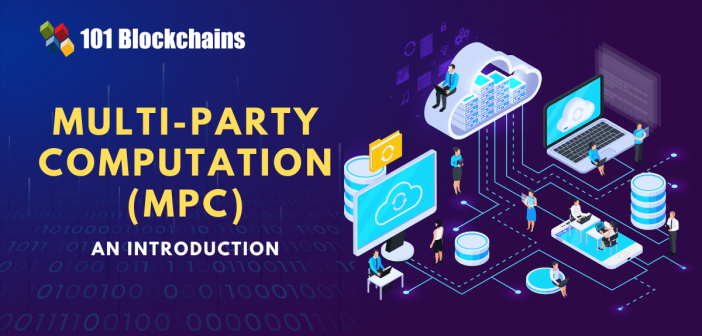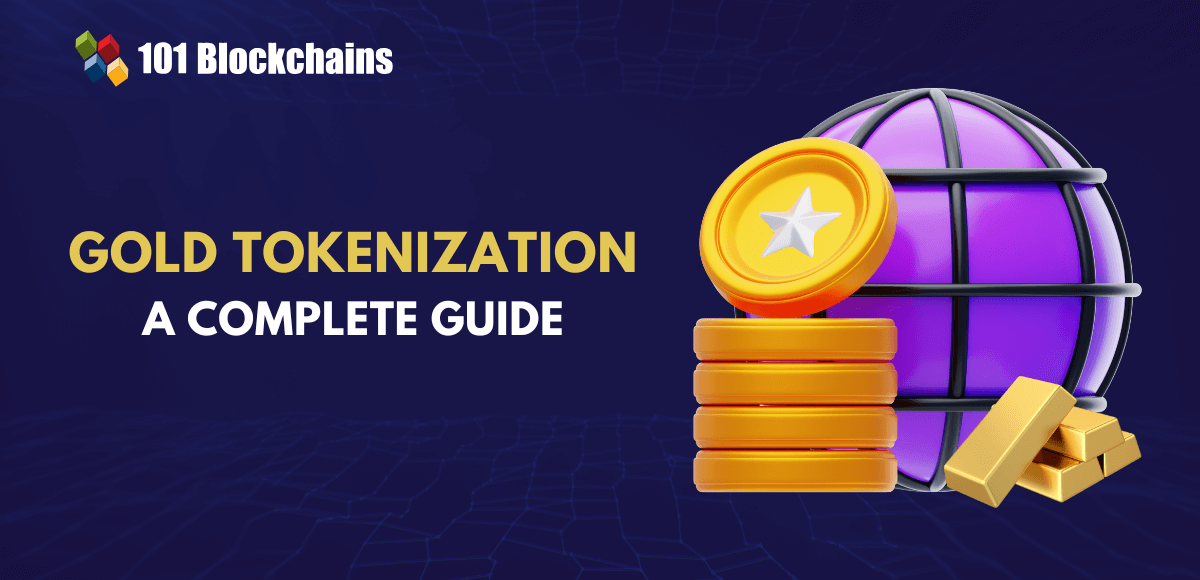Learn how blockchain truly works, master key definitions, and uncover what makes smart contracts so "smart." Dive into the fundamentals, gain valuable insights, and start your blockchain journey today!

- Guides
Gwyneth Iredale
- on September 21, 2021
Know Everything about MPC (Multi-Party Computation)
Data has the potential for solving almost all problems. As of now, data is the most essential requirement for the analysis of complex problems. In addition, data also helps in shedding light on possibilities of new solutions alongside discovering answers for conventionally unanswerable questions. However, the use of data for purposes that serve the public good can be quite ambiguous due to conflicts between data sharing and data security.
Therefore, you can discover many legal, privacy-related, or ethical restrictions on data sharing in modern business environments. This is where you would need multi-party computation or MPC. What is MPC? The following discussion helps you know all about MPC such as its working, benefits and limitations in detail.
Enroll Now: Blockchain and Data Privacy Masterclass
Why Do You Need MPC?
The first aspect you need to understand before finding out ‘what is multi-party computation’ refers directly to the reasons. Why do you need MPC in the first place? In order to understand the reasons for coming up with a concept like MPC, it is important to take an example of a situation. Let us assume that the situation involves a group of five people in the company who are eager to know their average salary. All five people are interested to find out whether they are underpaid although without disclosing their individual salaries. So, could you find out the average salary of the five people while ensuring that their salary information remains undisclosed?
Generally, you would look for a trusted third party before multi-party computation to help in finding out the average salary. However, the most important issue in relying on a third party is the element of trust. It is quite evident that trust is a scarce commodity, especially in cases involving the management of secret and sensitive information. On the other hand, you should also consider the risks of data exposure during transfers or the management process. Therefore, it is clearly evident that you need a better way for solving the problem of calculating the average salary. Is there any way to have the people calculate the average salary themselves without relying on any third party?
The most promising solution to this problem has emerged in the form of MPC or multi-party computation. The basic premise of MPC revolves around the division of the computation process rather than sharing the data required for computation. With each data subject managing a specific portion of the computation process, the term “multi-party computation” fits perfectly with this new approach.
Secure Multi-party Computation
MPC or Multi-party computation is also known as secure multi party computation or SMPC, especially for its security-enhancing capabilities. The technical definition of SMPC presents it as a cryptographic protocol which ensures the distribution of the computation process among multiple parties. The striking highlight of secure multi-party computation is the fact that any particular party involved in the transaction could not access the data of others. Basically, SMPC enables joint analysis of data among a group of participants without actually having to share the data.
Let us find out the application of multi-party computation blockchain in the average salary problem. The process for MPC would start with breaking down every person’s salary data into multiple pieces for enabling better sharing of the pieces. For example, if John earns a salary of $64,000 and there are five people in the average salary problem, you can divide the figure into five different pieces. Let us assume that the five different pieces are $85,000, $5000, $31,000, $-100,000 and $43,000, which add up to make $60,000.
Each party in the problem would keep one of the pieces. Similarly, the salary figures of Chris, Regina, and Betty would be divided similarly, resulting in 25 meaningless data pieces. Subsequently, each person would have five data pieces with them.
Now, every person could just add up the five pieces of data. However, it is important to note that each piece of data comes from different salary figures and they don’t have any meaning of their own. As a result, their sum also does not have any meaning of its own.
After computing all their totals, the five people could just sum up their totals and divided the grand total by five for obtaining the average salary. The simplicity of calculating average salary in this multi party computation example presents a clear understanding of the concept.
Eager to know how blockchain will affect business in 2021? Here’s a detailed guide to understand the impact of blockchain for business in 2021 across various sectors.
Essential Requirements in MPC
The next important concern in understanding ‘what is multi-party computation’ would refer to the requirements for MPC protocol. As we all know already, MPC is just a cryptographic protocol. So, how do you design the MPC protocol? Let us dive into the details of requirements for MPC protocols to understand them better.
The concept of multi-party computation basically revolves around an adversarial setting in which some of the involved parties or an external entity would aim at attacking the protocol. Such types of attacks might be largely focused on obtaining private information such as the salary of the participants. In some cases, such attacks can focus on causing incorrectness in the result of the computation. Therefore, it is quite clear that the two most essential requirements in an MPC protocol refer to privacy and correctness. Privacy in secure multi-party computation basically ensures that nothing is learned other than the things which are absolutely necessary. So, parties involved in SMPC could only find out about the specific output. In the case of the correctness requirement for MPC, every party is entitled to receive their correct output. As a result, adversaries could not cause discrepancies in the result of the computation.
Applications of Secure Multi-party Computation
The demand for MPC has been increasing profoundly in recent times across various sectors. As the wave of digital transformation takes over the world, it is important to consider the cases where we have to give up personal data for using online services. Organizations can use the data for optimizing their marketing efforts and what not. However, multi-party computation could offer much-needed relief from such concerns. Here are some of the notable applications of MPC technology that can offer the true benefits of security.
-
Privacy
The most important benefit of multi-party computation blockchain applications refers to privacy. MPC addresses the problem of enabling collaboration between different parties while preserving the privacy of their individual data. One of the examples of such use cases is evident in a comparison of a person’s DNA against a database of DNA of cancer patients. This can help in finding whether a person is in a high-risk group for a specific type of cancer. It is important to note that the task offers considerable health and societal benefits.
On the other hand, the DNA of a person is highly sensitive data and should not be revealed anywhere. You can deal with this problem by introducing a secure multi-party computation protocol for revealing the category of cancer closest to a person’s DNA. The privacy aspect, in this case, ensures that the person’s DNA-related information is safe while revealing only the category of cancer.
The use of MPC for privacy is also possible for enabling multiple banks for operating risk analysis and fraud prevention algorithms over the data in their possession. As a result, the banks don’t have to run the algorithms on their data only. With each party having more data, the algorithms can perform better. On the contrary, competitive and compliance factors serve as huge setbacks for banks in pooling their data. The multi-party computation example of average salary can be applicable here with each person replaced by a bank. Multiple banks could analyze the overall data they have without disclosing personal and sensitive data.
Blockchain technology undoubtedly has many benefits, especially cryptographic security, albeit with several issues. Check out the notable blockchain security issues here!
-
No Single Point of Failure
Another profound advantage of choosing multi-party computation refers to the lack of a single point of failure. The protection of cryptographic keys from misuse and theft qualifies as one of the top applications of MPC. Multi-party computation ensures that cryptographic keys are never exposed at any instance and enforces the relevant usage policies across multiple entities. As a result, MPC can enable abilities for safeguarding cryptographic keys in software. This can open up the door for new alternatives to the conventional hardware solutions, which are responsible for various operational challenges in modern multi-cloud and hybrid environments.
-
Security
The significance of secure multi party computation relies largely on its ability to ensure the security of personal data. In the case of present-day networks, defense mechanisms take zero-trust as the default consideration. Zero-trust basically implies that attackers are present in the network and everything is associated with potential vulnerabilities. The most proven approach for defense against zero-trust concerns involves secretly sharing data between two or different sites. Then, you must introduce MPC for ensuring work on the data without having to bring the data together on one platform. The secret sharing method by using MPC ensures that attackers could not learn anything without bringing all shares together.
With MPC, we can witness a completely new approach towards security. Now, security would focus more on forcing attackers to breach multiple disparate lines of defense. MPC can enable every individual entity to secure their own data without having to develop an impenetrable mechanism for a single machine harboring sensitive data.
Want to become a certified blockchain security expert? Enroll in Certified Blockchain Security Expert (CBSE) course now!
Advantages of MPC
Another crucial aspect in discovering the answers to ‘What is multi-party computation’ would take you to its benefits. The most notable benefits of MPC include the following.
- Commercial readiness
- Lack of data visibility for trusted third-parties
- Elimination of tradeoff between data privacy and data usability
- Improved accuracy and precision
- Better safeguards against quantum attacks
- Compliance with GDPR and other data privacy regulations
Conclusion
Multi-party computation definitely has a lot of potential to transform the way we perceive security and privacy. MPC is basically a protocol that enables safer data analysis in groups without having to share personal data. The applications of MPC could not only foster improved scope for collaboration in data analysis projects for the common good but also offer assurance of data security for all participants. MPC technology can offer the advantages of privacy, security, and freedom from single points of failure. With all these value advantages, it is still important to reflect on the possible ways in which MPC can be implemented in the real world.
New to blockchain technology? Enroll now in our Free Blockchain Course to get started!




